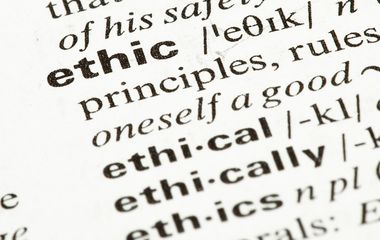
About Us
The Standards Commission is an independent body whose purpose is to encourage high ethical standards in public life through the promotion and enforcement of Codes of Conduct for councillors and those appointed to the boards of devolved public bodies.
Polarisation in Politics
15th February 2023
The resignation of Nicola Sturgeon as First Minister of Scotland has dominated today’s news cycle. In her resignation speech, she spoke about the ‘intensity’ and ‘brutality’ of being a politician, and about polarisation in politics, calling on all political parties to take an opportunity to:
“de-polarise public debate just a bit; to focus more on issues than on personalities; and to reset the tone and tenor of our discourse.”
We have looked at these issues in previous blog posts, highlighting the abuse and vitriol that serving politicians can face, and reiterating that the need to make politics both an open and safe space for everyone, and especially for underrepresented groups and minorities, is paramount. Leading by example in adhering to the key principle of respect is a vital step in creating such a space and removing toxicity from politics.
Respect is a key requirement of the Councillors’ Code of Conduct, and the Model Code of Conduct for Members of Devolved Public Bodies. Paragraph 3.1 of both Codes states: I will treat everyone with courtesy and respect. This includes in person, in writing, at meetings, when I am online and when I am using social media.
These provisions are vital, as the way in which politicians and others in public life conduct themselves will often set the tone for political debates. For example, if a national or local politician fails to act with integrity or is rude or disrespectful (or if they fail to act to address such behaviour in others), then such conduct becomes normalised.
Politicians and those in public life are, themselves, also entitled to respect. This doesn’t mean, though, that they can expect that everyone will agree with their views and decisions, or that members of the public don’t have a right to make their own opinions known. However, politicians and others in public life should not have to face violence, personal abuse or otherwise be made to feel unsafe. A successful democracy relies on there being a sufficiently large and sufficiently diverse group of individuals who feel willing to stand for office. Those from minority or under-represented groups are increasingly likely to be the subject of disrespectful and bullying behaviour, which in turn then has an effect on whether they will choose to enter or remain in politics. Additionally, having to face personal attacks can have a hugely detrimental impact on an individual’s mental health and, in some instances, can lead to people resigning or deciding not to stand for office.
That is not to say that everyone should just agree with each other. Differences of opinion and policy are normal, welcomed and vital. Indeed, without such differences there would be limited challenge to the status quo and consequently little progress. It is nevertheless important to draw a distinction between, on the one hand, outlining the reasons for not agreeing with an opinion or view and, on the other, engaging in a personal attack.
Acting respectfully does not prevent someone from criticising a politician’s views, or prevent scrutiny of their proposals and decisions. Instead, it allows a democratic space for differing opinions to be heard and helps enable an environment in which courteous, free and varied public debate can take place. A space in which views are exchanged in a positive and constructive manner is arguably much more likely to result in areas of consensus between opposing camps, and can help reduce the likelihood of two sides of a debate becoming so polarised that any hope of meaningful engagement is lost. After all, it is unlikely that we will be able to persuade others about the merits of our views if we don’t listen to what they have to say, shout them down, or resort to personal attacks.
This increasing polarisation, highlighted by the First Minister in her resignation speech, along with the immediate, constant and regularly adversarial nature of social media, has contributed to a deterioration in the standards of public debate. We all have a part to play in promoting a culture of respect, in order to protect our democracy and allow it to thrive.

